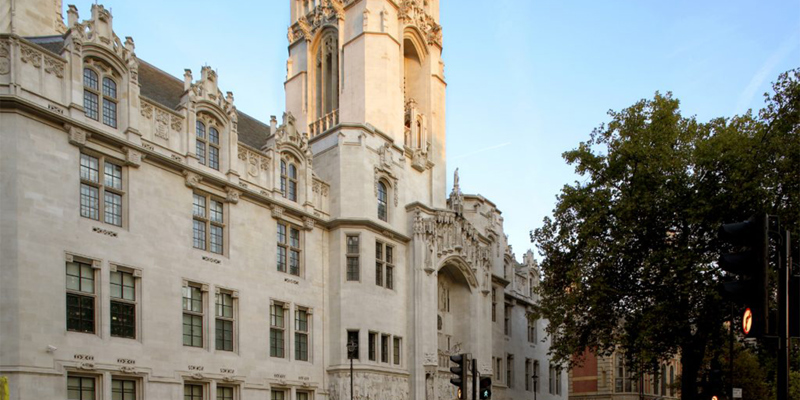
Landmark decision: Supreme Court’s ruling on injunctions and the rights of 'newcomers’
Wolverhampton City Council v London Gypsies
The Supreme Court recently handed down judgment on the validity and requirements of injunctions against ‘persons unknown’ in Wolverhampton City Council and others v London Gypsies and Travellers and others. Partner Ed Cracknell and trainee James Underwood consider the possible implications for private landowners.
Background and judgment
Between 2015 and 2020, a number of local authorities applied for injunctions against unidentified persons, with the aim of preventing future unauthorised encampments on their land. The main issue before the Supreme Court was whether judges have the power to grant injunctions against so-called ‘newcomers’: persons who have not (yet) done anything to warrant a legal remedy against them, and who cannot be identified when the injunction is granted.
It is a general principle of law that a person should normally have carried out some unlawful activity (or at least threatened to do so), and been given an opportunity to represent themselves in court, before an order is made against them prohibiting that activity.
Following a wide-ranging review of the court’s jurisdiction and the development of modern injunctions, the Supreme Court found no legal obstacle to the granting of newcomer injunctions. The Court has made clear, however, that judges must be guided by equitable principles when considering whether to grant such an injunction. Helpfully, the judgment contains guidance on this point, but there are still questions to be answered.
The decision
Although the Supreme Court’s decision to allow the local authorities’ appeal could perhaps be said to go against the normal principle that a court should be slow to order an injunction contra mundum ('against the whole world'), regardless of whether some unlawful activity has been threatened, this was in part a pragmatic choice.
The local authorities involved had shown that the normal remedies available are not adequate, because by the time proceedings are commenced, the original group will have often left, either moving to another site where the order has no effect, or being replaced by another group against whom proceedings had not been issued.
As a matter of law, a court’s authority to order injunctions is unlimited, but it should exercise that authority subject to various safeguards. The court listed the following safeguards, but emphasised that these should evolve over time:
(i) Compelling need: There must be a compelling need, supported by evidence, for the protection of civil rights or the enforcement of specific statutory objectives within the locality that cannot be adequately addressed by other available measures, such as new byelaws.
(ii) Procedural protections: There should be adequate procedural protections for the rights of the newcomers, such as bringing the injunction to the attention of those who might be affected by it, and giving them a full opportunity to challenge or vary the injunction.
(iii) Disclosure duty: Applicants must comply with their duty of full and frank disclosure, bringing to the court’s attention any arguments against the injunction which the targeted newcomers might have raised if given the chance.
(iv) Territorial and temporal limitations: The injunction should be limited, both geographically and in duration, to ensure that it does not extend beyond the specific circumstances justifying its imposition.
(v) Justice and convenience: On the particular facts of the case, it must be just and convenient to grant the injunction. It might not, for example, be just to restrain certain activities if the local authority has not fulfilled its responsibilities, such as the duty to provide authorised sites.
Considerations for private landowners
Where does this leave private landowners?
The owners of large areas of land such as parks and commons, who are often charities or not-for-profit organisations, are equally at risk of harm from trespassers and unwanted encampments.
The judgment only concerns applications by local authorities, and not all of the guidance will be relevant to private landowners. In assessing whether to apply for a newcomer injunction, we suggest that the safeguards listed above might be modified for private landowners as follows.
Applicants should show that they have been subject to incursions more than once, that they have suffered (or may in the future suffer) harm as a result, and that other remedies are not sufficient.
Private landowners will need to meet their duty of disclosure just as local authorities must, since newcomer injunctions are necessarily applied for without notice. The court will therefore expect the applicant to draw its attention to any issue which a newcomer might raise in opposing an order.
Protecting the rights of persons affected by the injunction can be achieved by:
- Identifying as precisely as possible the intended respondents and the actions prohibited. For example, where the land is open to the public (such as a park or recreational area), the order might be limited to prohibiting vehicular access.
- Restricting the injunction’s duration and geographical scope to that which is necessary. This should be easier for private landowners, who will generally be seeking to protect a comparatively small parcel of land, rather than an entire local authority area.
- Advertising the application in advance. We suggest that a private landowner’s duty might be more limited, perhaps requiring them to place notices of the application on the land and send copies to any appropriate body, such as London Gypsies and Travellers.
- Allowing wide scope for anyone affected to challenge the injunction.
Private landowners will be pleased to know that the law recognises the validity and viability of newcomer injunctions. Although the Supreme Court did not directly address expectations in relation to private landowners, it is possible that much of the guidance will be relevant to such applicants.
Russell-Cooke’s property litigation team can assist with applications for possession or injunctions in relation to acts of trespass.

Real estate legal news—May 2024
Welcome to the third edition of Russell-Cooke’s real estate legal news. We would like to take the opportunity to update you on the developments, trends, concepts and issues that have caught the attention of our contributors in recent months.
Get in touch
If you would like to speak with a member of the team you can contact our property litigation solicitors by email, by telephone on +44 (0)20 3826 7525 or complete our enquiry form below.





